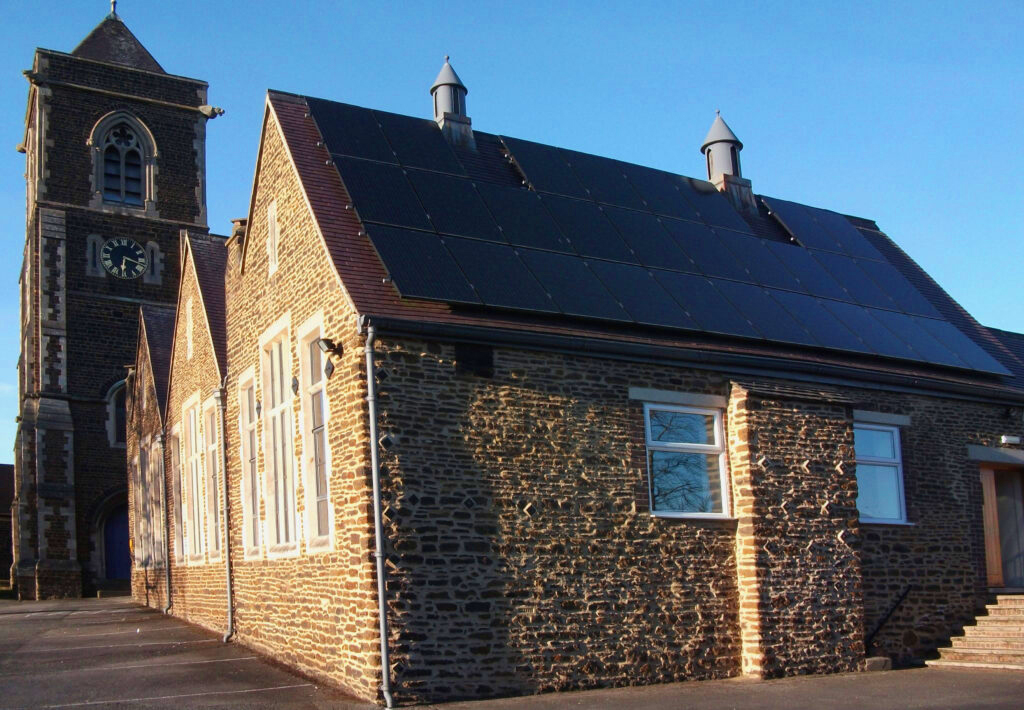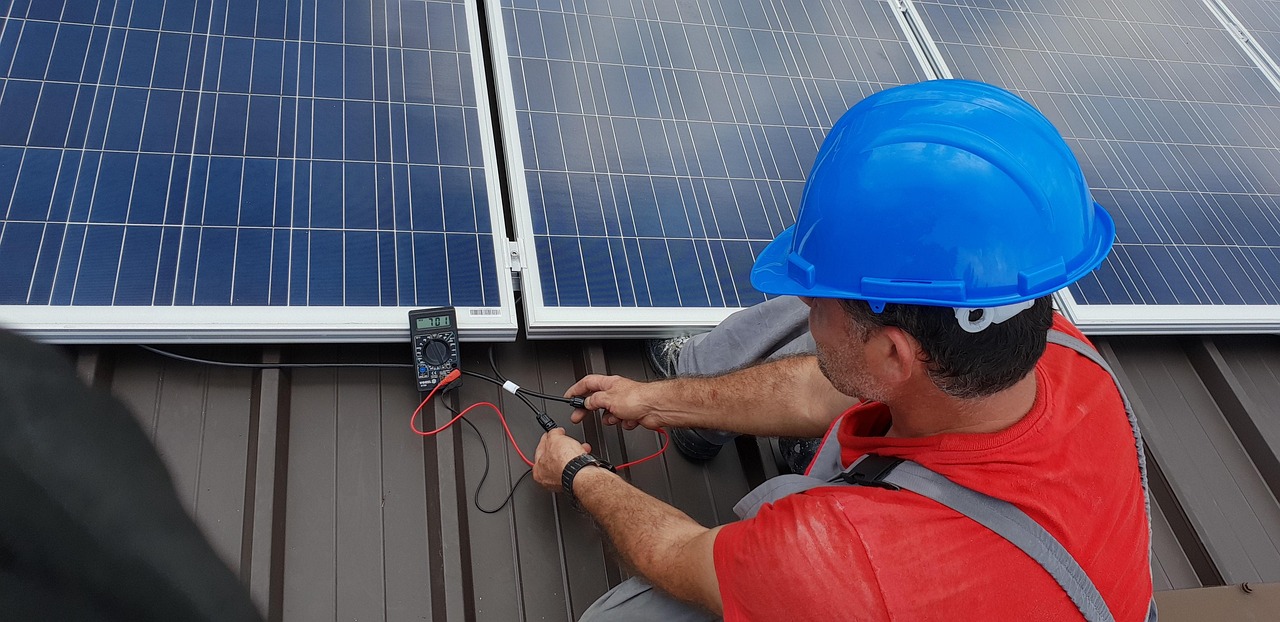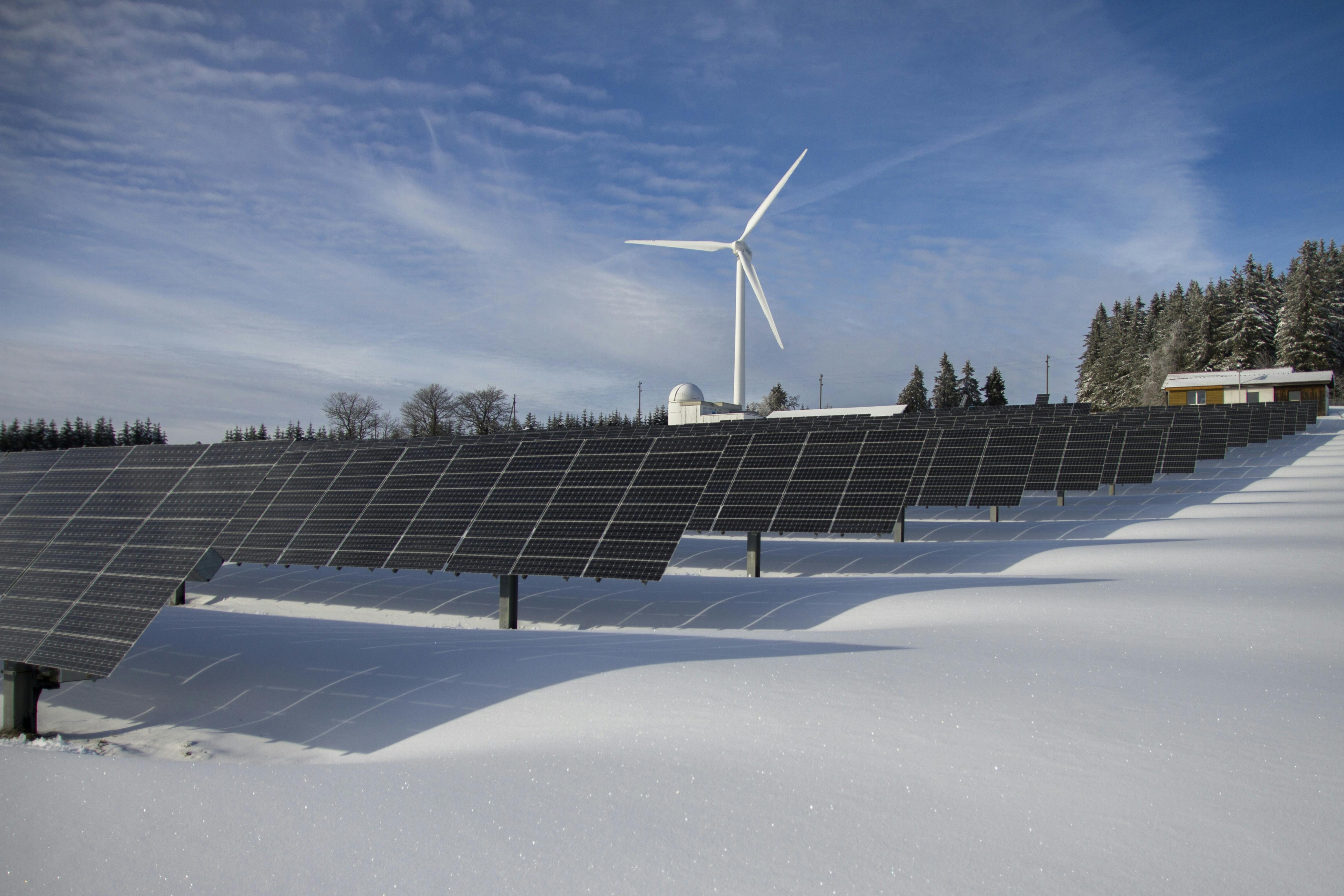What is The Return on Investment For Solar Panels in the UK?
Discover the return on investment for solar panels with our comprehensive guide. Learn about costs, savings, and strategies,

Understanding the return on investment (ROI) for solar panels is crucial for homeowners considering green energy solutions. ROI measures the profitability of an investment and, for solar panels, it reflects how much you save on energy bills over time compared to the initial installation cost. Knowing your ROI can help you make an informed decision about whether installing solar panels is a financially sound choice.
In this article, we will explore what ROI is, the factors influencing it, how to calculate it, and tips for maximising your investment in solar energy. By the end, you'll have a comprehensive understanding of the potential financial benefits of going solar and the ROI of solar panels.
Key Takeaways:
What is ROI for Solar Panels and Why is it Important?
Return on investment (ROI) for solar panels is a measure of the profitability and financial benefits of installing a solar energy system. It is calculated by comparing the net profit gained from energy savings and potential incentives to the total cost of the installation. In simpler terms, ROI indicates how much money you save or earn over a specific period compared to what you spent on the solar panels.
Importance of ROI
Financial Viability: Knowing the ROI helps homeowners determine if the upfront investment in solar panels will pay off in the long run. It provides a clear picture of potential savings on electricity bills and the overall financial benefits.
Informed Decision-Making: ROI allows homeowners to compare different energy solutions and choose the most cost-effective option. By understanding the return on their investment, they can make more informed decisions about whether solar panels are the right choice for their home.
Budget Planning: Calculating ROI helps homeowners plan their budget for solar panel installations. It gives them a realistic expectation of when they will start seeing returns and how much they can expect to save over time.
Maximising Benefits: By understanding the factors that influence ROI, such as initial costs, energy savings, and government incentives, homeowners can take steps to maximise their investment. This might include choosing high-efficiency panels, taking advantage of rebates, or optimising their energy usage.
Calculating the ROI for Solar Panels
Calculating the return on investment (ROI) for solar panels is essential to understand the financial benefits of your investment. Using UK average data, let's walk through the steps to calculate the ROI for a 4kW solar panel system without a battery.
UK Average Data
Average Cost: £6,500 for a 4kW system
Average Savings: £750 per year
Steps to Calculate ROI
1. Determine the Total Cost of Installation:
- The initial investment includes the purchase of the solar panels, inverters, mounting hardware, and installation labour.
- For a 4kW system without a battery, the average cost is £6,500. To get a more precise estimate tailored to your needs, use MakeMyHouseGreen’s solar panel cost calculator.
2. Calculate Annual Energy Savings:
- This figure represents the amount you save on your electricity bills each year by using solar energy.
- For the average UK household, this savings is approximately £750 per year. Using our solar panel calculator can provide you with a more accurate figure of potential savings.
3. Account for Government Incentives and Rebates:
- In the UK, incentives such as the Smart Export Guarantee (SEG) can further enhance savings by paying homeowners for excess electricity generated and exported back to the grid.
- While these incentives vary, they should be considered as part of the annual savings.
4. Calculate Net Profit Over the System’s Lifespan:
- Multiply the annual savings by the expected lifespan of the solar panels to determine the total savings over time.
- For a lifespan of 25 years: £750 annual savings x 25 years = £18,750 total savings.
5. Calculate the ROI:
- Use the ROI formula: ROI = (Net Profit / Total Investment) x 100.
- Calculate net profit: £18,750 total savings - £6,500 initial investment = £12,250 net profit.
- Calculate ROI: (£12,250 net profit / £6,500 initial investment) x 100 = 188.46%.
This calculation shows that over the lifespan of the solar panels, you can expect a 188.46% return on your initial investment. That averages out to around 7.5% per year - almost double the FTSE 100 which averaged 4.79% over the past 20 years, but the FTSE 100 doesn’t offer the potential to increase your home’s value now does it? Read more on that in the below-linked article:
Recommended article: Do Solar Panels Increase House Values?
ROI For Different Solar Systems
Here is the ROI for different solar panel systems after 10, 15, 20, and 25 years using UK average data:
System: 3kW system
Cost (£): 6,000
Savings per Year (£): 600
ROI after 10 years (%): 0%
ROI after 15 years (%): 50%
ROI after 20 years (%): 100%
ROI after 25 years (%): 150%
System: 4kW system
Cost (£): 6,500
Savings per Year (£): 750
ROI after 10 years (%): 15.38%
ROI after 15 years (%): 73.08%
ROI after 20 years (%): 130.77%
ROI after 25 years (%): 188.46%
System: 6kW system
Cost (£): 8,000
Savings per Year (£): 900
ROI after 10 years (%): 12.50%
ROI after 15 years (%): 68.75%
ROI after 20 years (%): 125.00%
ROI after 25 years (%): 181.25%
For an estimate of your potential savings and ROI, use MakeMyHouseGreen’s solar panel calculator, which is 97% accurate. This tool can help you understand the financial benefits specific to your home and make an informed decision about investing in solar energy.
Factors Influencing the ROI of Solar Panels
Several key factors influence the return on investment (ROI) of solar panels, each playing a significant role in determining the financial benefits you can expect. Understanding these factors can help you maximise your investment and make more informed decisions.
Initial Investment Cost
The initial cost of installing solar panels includes the purchase of the panels, inverters, mounting hardware, and installation labour. This cost can vary significantly based on the type of panels you choose and the specifics of your installation:
Type of Panels: Monocrystalline panels tend to be more efficient but more expensive than polycrystalline and thin-film panels.
Installation Specifics: Roof type, complexity of the installation, and labour costs in your area can affect the overall cost. Please note that most installers include the installation costs in the overall solar panel system price.
Energy Savings
The amount of money you save on electricity bills is a major component of the ROI for solar panels. These savings depend on several factors:
Electricity Rates: Higher electricity rates increase the value of the energy your solar panels produce, leading to greater savings.
Solar Panel Efficiency: More efficient panels produce more electricity, which can result in higher savings.
Energy Consumption: Your household's energy usage patterns will influence how much of your electricity needs are met by solar power, impacting overall savings.
Energy Prices
The cost of electricity is a crucial factor in determining ROI. As energy prices rise, the value of the electricity generated by your solar panels increases:
Historical Trends: Historically, electricity prices have tended to rise over time, enhancing the long-term savings from solar panels.
Future Projections: Anticipating future energy price trends can help estimate potential savings more accurately.
Solar Panel Efficiency and Lifespan
The efficiency and lifespan of your solar panels are critical to maximising ROI:
Efficiency: Advances in solar technology have led to more efficient panels that generate more electricity from the same amount of sunlight.
Lifespan: Most solar panels come with a warranty of 25-30 years. Ensuring your panels last as long as possible through proper maintenance will maximise your ROI.
Maintenance and Monitoring
Proper maintenance and monitoring can ensure your solar panels operate at peak efficiency, further enhancing ROI:
Regular Cleaning: Keeping panels clean and free of debris can improve their performance.
Professional Inspections: Regular inspections by professionals can identify and fix any issues that might reduce efficiency.
Additional Investments
Investing in additional equipment, such as solar batteries, can enhance the ROI of your solar panel system:
Solar Batteries: These allow you to store excess energy produced during the day for use at night or during cloudy periods, increasing your energy independence and savings.
Energy Management Systems: Advanced systems can optimise the use of solar energy in your home, further improving efficiency and savings.
Maximising the ROI of Your Solar Panels
By optimising various aspects of your solar energy system, you can maximise your financial savings and the overall benefits of your investment.
Choosing the Right Solar Panels and Installation Services
Start by researching and comparing solar panel options, focusing on high efficiency ratings and strong warranties. Higher efficiency panels, though more expensive initially, can lead to greater long-term savings by converting more sunlight into electricity. Compare different types—monocrystalline, polycrystalline, and thin-film—to find the best fit for your budget and energy needs, and consider their durability against local weather conditions.
Selecting reputable installers is equally crucial. Choose experienced, positively reviewed, and certified installers who offer comprehensive warranties for both equipment and installation. MakeMyHouseGreen can connect you with our trusted, certified installers to ensure your solar panel system is installed to the highest standards.
Balancing cost and efficiency is another key consideration. Higher efficiency panels might cost more initially but can provide greater savings over time. Evaluate your long-term energy needs and select a system size that matches your consumption to avoid unnecessary costs.
Maintenance and Monitoring
Keeping your panels clean and free of debris, dust, and dirt helps maintain their efficiency. Scheduling regular cleanings is especially important if you live in an area with heavy pollution, dust storms, or bird activity.
Annual professional inspections ensure that everything is functioning correctly. Inspections can identify potential issues before they become major problems, and addressing any repairs promptly avoids efficiency losses. Adiitionally, regular maintenance can extend the lifespan of your panels and maximise their performance.
Additional investments to Enhance ROI
Considering additional investments, such as solar batteries, can also enhance your ROI.
Investing in solar batteries allows you to store excess energy produced during the day for use at night or during cloudy periods, helping you become more energy-independent and reduce reliance on the grid, enhancing overall savings. Storing and using your own solar energy is particularly beneficial if your utility has high electricity rates or time-of-use pricing. Batteries also provide backup power during outages, adding an extra layer of security for your home.
Final Thoughts
Understanding the return on investment (ROI) for solar panels is crucial for making an informed decision. By evaluating the initial investment, annual savings, and government incentives, you can see the financial benefits clearly. Maximising ROI involves choosing high-efficiency panels, reputable installers, and additional investments like solar batteries, alongside regular maintenance.
For a personalised cost and savings estimate, use MakeMyHouseGreen’s solar panel calculator and start your journey towards a greener, more energy-efficient home with expert advice and top-quality installations from MakeMyHouseGreen.
Recommended Articles
- The Cost-Effectiveness of Solar Panels
- How Much Energy Do Solar Panels Produce?
- The Pros & Cons of Solar Panels for Your Home
Ready to see what you can save?
Our solar calculator is 100% free to use. Enter your postcode below to get started.

Based on 400+ Trustpilot reviews






